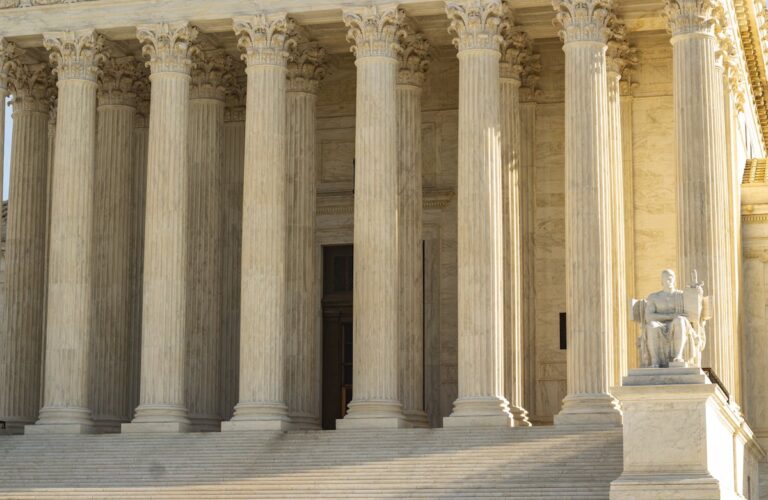Circle K Violating the FLSA?
As we examine the recent allegations leveled against Circle K for potential violations of the Fair Labor Standards Act (FLSA), it becomes imperative to scrutinize the magnitude of this issue. Reports suggest that the company might have faltered in adequately compensating their employees for overtime, raising serious concerns about wage theft. What does this mean for Circle K’s future operation, its reputation, and the broader impact on the retail industry? Unpacking this complex situation will shed light on the potential ramifications and spark conversations about the importance of FLSA compliance.
Understanding the Fair Labor Standards Act
The Fair Labor Standards Act (FLSA), enacted in 1938, is a pivotal piece of legislation that sets the standard for American labor laws. It establishes critical protections for employees, including minimum wage and overtime pay. The FLSA is designed to prevent the exploitation of workers, and its regulations apply to businesses across the country, including Circle K.
The FLSA stipulates that the federal minimum wage is currently set at $7.25 per hour, and it requires employers to pay their employees at least this amount for all hours worked. However, some states have set higher minimum wage levels, which employers are obligated to meet.
Moreover, the FLSA also imposes regulations pertaining to overtime pay. Employees who work more than 40 hours a week are entitled to receive overtime pay, which is one and a half times their regular rate of pay. This is a critical protection for employees, ensuring they are adequately compensated for their additional labor.
Allegations Against Circle K
In recent years, Circle K has come under scrutiny for alleged violations of the Fair Labor Standards Act. This international chain of convenience stores has been the subject of serious scrutiny regarding its retail practices, specifically concerning the treatment of its employees. Allegations range from wage disputes to overtime violations, painting a picture of possible systemic noncompliance with labor laws.
Employee treatment, specifically, has been a significant concern. It is alleged that, despite manager responsibilities to guarantee fair working conditions, numerous Circle K employees have not received due overtime pay. These allegations have not only been a catalyst for labor advocacy groups but have also raised questions about the effectiveness of Circle K’s compliance training.
The alleged violations not only impact the company’s reputation but also potentially affect employee morale. Disputes over wages and overtime can lead to a decrease in job satisfaction, which may ultimately affect the company’s overall performance. As these allegations continue to surface, it is imperative for Circle K to address these issues promptly to guarantee compliance with the Fair Labor Standards Act and promote a fair, equitable working environment.
Circle K’s Employee Rights
As we continue our exploration into Circle K’s alleged FLSA violations, it is essential to examine the rights of the company’s employees. This discussion will include an analysis of the workplace conditions and a thorough examination of Circle K’s compliance with the Fair Labor Standards Act. It will provide an objective look into how the company’s actions may affect its workforce, potentially laying the groundwork for legal implications.

Workplace Conditions Analysis
Despite being an established multinational chain of convenience stores, Circle K appears to be infringing upon employee rights as prescribed by the Fair Labor Standards Act (FLSA).
The workplace conditions at Circle K have come under scrutiny, with several key issues emerging, namely workplace safety, wage disparities, and overtime pay. There seems to be a significant gap between the company’s stated policies and their implementation, leading to a potential violation of the FLSA.
Workplace safety, a fundamental right of every employee, appears compromised, with reported incidents indicating that not all Circle K locations adhere to the required safety standards. This has an adverse impact on employee morale and job satisfaction, leading to a high employee turnover rate.
Furthermore, labor relations seem strained due to wage disparities. Allegations suggest that Circle K may not be providing equal pay for equal work. Additionally, there are concerns about the nonpayment of overtime, a direct violation of the FLSA.
Lastly, these issues seem to be deeply ingrained in Circle K’s workplace culture, which is purportedly more focused on profits than on employee rights and well-being. This, in turn, further exacerbates the already low employee morale.
FLSA Compliance Investigation
Numerous employees from various Circle K branches have lodged complaints suggesting potential violations of the Fair Labor Standards Act (FLSA). These allegations primarily revolve around two critical areas: overtime regulations and wage theft.
In terms of overtime regulations, employees assert that they have been compelled to work beyond the standard 40-hour workweek without receiving the legally mandated time-and-a-half pay. If these claims are substantiated, Circle K could be in direct violation of FLSA overtime provisions, which stipulate that non-exempt employees must receive overtime pay for hours worked over 40 in a workweek.
On the issue of wage theft, employees allege that Circle K has failed to compensate them accurately for all hours worked. Some report instances where their recorded work hours were inexplicably reduced, resulting in lower pay. This situation could potentially constitute wage theft, a serious violation of FLSA.
These allegations have triggered a thorough FLSA compliance investigation. This investigation aims to determine if Circle K has indeed violated FLSA provisions, and if so, to what extent. The outcomes of this inquiry could have significant ramifications for Circle K, including potential penalties and the need for policy reform.
Potential Consequences for Circle K
The potential consequences for Circle K’s alleged violation of the Fair Labor Standards Act (FLSA) are substantial and far-reaching. To begin with, there are significant legal ramifications. Circle K may face hefty fines, penalties, and possibly, class-action lawsuits from affected employees. This could result in a considerable financial burden for the company, which could impact its operational viability and profitability in the long run.
Beyond the financial implications, these allegations could also severely damage Circle K’s reputation. Such negative publicity could diminish customer trust and loyalty, potentially resulting in a decline in sales and market share. Additionally, this could also make it difficult for Circle K to attract new talent or retain existing employees.
Impact on the Convenience Store Industry
While the potential consequences for Circle K are significant, it’s important to contemplate the broader implications these allegations may have on the entire convenience store industry. The violations Circle K is accused of could force the industry to reevaluate its convenience store practices, especially those related to employee rights and compensation.
The labor law implications could be far-reaching. If Circle K is found guilty of violating the Fair Labor Standards Act (FLSA), it could set a precedent for future cases involving other convenience stores. They may be prompted to scrutinize their employment policies to guarantee compliance with labor regulations.
Moreover, the convenience store industry is highly competitive. Any negative publicity or legal action could harm a company’s reputation and customer trust. In Circle K’s case, the allegations may prompt other convenience stores to distance themselves from similar practices and consequently, reshape industry standards.
Lessons From Circle K’s Case
Scrutinizing Circle K’s alleged violations provides important lessons for companies across the convenience store industry. The case underscores how wage discrepancies can negatively impact employee morale and ultimately, business operations.
Key takeaways include:
- Ensuring Compliance: Companies must familiarize themselves with the Fair Labor Standards Act (FLSA) and other labor laws to avoid potential violations. Ignorance of the law is not a defense.
- Addressing Wage Discrepancies: Regular audits of payroll practices can help identify and rectify wage discrepancies, reducing the risk of legal action.
- Boosting Employee Morale: Fair compensation practices contribute to a positive workplace environment. A happy workforce can boost productivity and improve customer service.
- Risk Management: Proactively addressing potential compliance issues can save companies from costly legal battles and damage to their reputation.
Frequently Asked Questions
What Other Companies Have Violated the Fair Labor Standards Act?
Numerous companies, including Walmart, FedEx, and Bank of America, have faced violations of the Fair Labor Standards Act, primarily relating to wage theft and infringements on labor rights, reflecting an industry-wide issue.
How Can Circle K Employees Report Violations of Their Rights?
Circle K employees can report violations of their rights by following proper reporting procedures. This includes contacting their HR department, filing a complaint with the Department of Labor, or seeking legal counsel if necessary.
What Is the Procedure to Settle FLSA Violations?
The procedure to settle Fair Labor Standards Act (FLSA) violations involves filing a complaint with the Department of Labor. The settlement process aims to restore employee rights and may include back pay and damages.
How Will Circle Ks Case Impact Its Stock Price and Market Value?
The case’s impact on Circle K’s stock performance and market value will depend on market reaction, which often fluctuates based on legal outcomes. Historically, such disputes can cause temporary instability in a company’s stock price.
Are There Any Preventive Measures for Other Businesses to Avoid FLSA Violations?
To avoid FLSA violations, businesses should implement preventive strategies such as regular compliance training. This guarantees understanding of labor laws, thereby mitigating the risk of non-compliance and potentially costly legal consequences.






